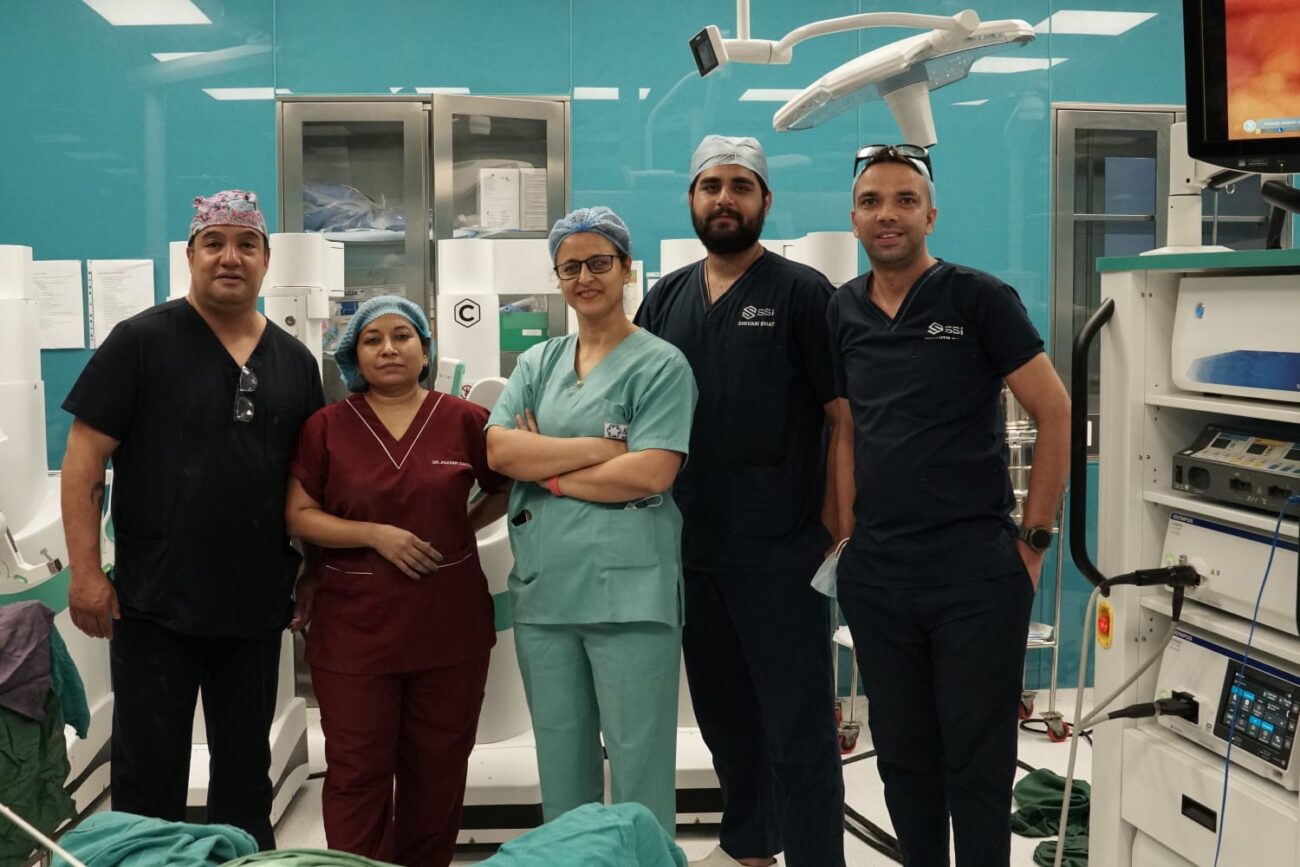Maintaining Healthy Weight: A Key to Maximize Lifespan of Knee Replacement- Dr. Akhilesh Yadav
Regular exercises and brisk walking can prevent revision of total knee replacement. Incidences of Joint replacement surgeries have seen an upsurge in the past 5 years. India is currently facing knee ailments epidemic. According to a recent study,
Regular exercises and brisk walking can prevent revision of total knee replacement.
Incidences of Joint replacement surgeries have seen an upsurge in the past 5 years. India is currently facing knee ailments epidemic. According to a recent study, more than 15 crores Indians suffer from knee related problems like loss of cartilage, ACL tear and various types of age related degenerative arthritis like osteoarthritis, Rheumatoid Arthritis, Unicompartmental arthritis among many others. Out of which over 4 crores of them need an immediate Knee Replacement surgery, which is affecting their quality of life and also imposing a huge health burden on the country. According to the recent data provided by Joint registry (ISHKS), over 35,000 total knee replacements (TKR) have been performed in India last year.
Evident from the data it is clear that more than 75% of the TKR were performed on women ranging in the age bracket of 45-70 years. More than 33000 cases (over 97%) of TKR were attributed to osteoarthritis.
Though most of the TKR are sustainable in more than 90% of the cases and have a life of around 15-20 years, but over time if the knee replacement fails due to variety of reasons. In such cases patients may require to undergo a Revision TKR (RTKR) due to the increased swelling and painful knee joints. The patients may also feel stiffness, instability that may hinder in their day-to-day activities.
What is Total Knee Replacement and how common it is?
During a primary knee replacement surgery, the knee joint is replaced with an implant, which is in most of the cases successful. But sometimes due to loosening of the implants or wear out, a revision procedure may be required. Depending upon the condition, the revision surgeries may include replacement of partial components of the implants, Unicompartmental joint replacement or complete replacement.
In some of the cases due to trauma or an injury to the bone may make it harder for the surgeon to use standardized implants during a revision surgery, where specially designed implants are required.
Avoiding such complications of injury to the joints or adjacent areas and taking certain precautionary measures can ensure an enhanced lifespan of the implants and avoids the need for a revision knee replacement surgery.
Maintain an optimal Body Mass Index (BMI) – Poor eating habits and a sedentary lifestyle often post surgery ends up in unwanted weight gain. It is thus advised to eat a healthy and balanced diet along with regular mild exercises to maintain the BMI.
Physical activity and regular exercise – regular exercise is a must, and always consults the treating doctor for the moderation, before taking up heavy workouts. It is usually advised for brisk walking, basic physical exercise like aerobics for atleast 5 days a week. This will not only help in strengthening the muscles but also helps in proper settling and adjustment of the implants. Regular exercise will also benefit the patient for a prolonged life of the implant.
Avoid cross legged sitting immediately after surgery- Adopting to a table chair lifestyle for initial few months post a knee replacement will reduce the wear and tear allowing the implants to settle better as per the curvature of the actual bone. Consult the surgeon when to involve in such activities.
Regular walk- To decrease the chances of re-do surgery, it is important to increase the pace of walking pace and distance after few months of surgery. Walking is purely an individual capacity. At the end of 2 months one should be able to walk 1-1.5 km per day which can be increased to 250 meters by the end of 3-4 months, till 3 km per day mark is achieved.
Yearly check-ups- TKR patients must visit the surgeons yearly to keep a check on loosening in the joint which can be dealt with time.
Patients with lifestyle ailments such as diabetes and hypertension should regular measure and monitor the same. Diabetic patients are at elevated risk of developing infections even months after the surgery and hence the blood sugar should be monitored regularly.
If these measures are properly addressed then the lifespan of knee replacement surgeries may result to long term benefits. In case of any problem at any point, it is important to get information from the concerned surgeon.



